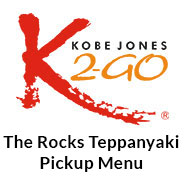Japan is high on many travel destination bucket lists. Whether it’s the cuisine, friendly people, bustling cities, beautiful natural sites or the awesome snowsports you’re after, Japan really does cater for every kind of tourist.
But there are a few things you need to know, such as manners and the complex public transport system to ensure you have the best time possible.
Why is Japan such a fantastic holiday destination?
In 2016, over 24.4 million people visited Japan, meaning the number of visitors to the island nation more than doubled since 2014. As a destination that’s relatively close to Australia in comparison to Europe, it’s well and truly earned its place a top contender on the holiday bucket list of Australians. Combining fascinating ancient culture with the peak of modernity through its architecture, customs, trades and cities, Japan is a stunning combination of old and new that’s just waiting to be explored.
1. Respect and politeness are valued extremely highly
In Japan, etiquette goes beyond just knowing which fork or spoon to use when you’re at the table. The Japanese people value being respectful, polite and sincere above all else in their interactions with other people, and it’s important that visitors to the country take this into account.
Bowing is nothing less than an art form in Japan. It’s a way of actively showing respect while having a conversation with someone, and it sometimes happens almost constantly throughout interactions. You don’t need to bow all the time, but bowing at the beginning and end of meeting someone is definitely necessary. For tourists, a simple inclination of the head or an attempt to bow at the waist will usually suffice.
It’s also important to address people properly. Just as someone who was called ‘Dr. Parkinson’ might feel a little insulted if you just called them ‘Parkinson’, the Japanese may feel the same if you don’t attach the suffix ‘san’ to their last name, or ‘sama’ if you are being particularly respectful. For children, it’s okay to just use their first names, but you can always add the suffix ‘chan’ for girls and ‘kun’ for boys if you like.
2. How is everything so clean?
We really cannot emphasise this enough: don’t litter when you’re travelling in Japan (or at all for that matter!) The Japanese people take great pride in keeping their cities clean, and they’ll do anything it takes to ensure they stay this way. Trash cans in Japan are usually grouped together in major public areas, so you might need to hold onto your trash for a little while if you’re walking around.
Stores and restaurants are held to impeccably high standards when it comes to cleanliness and hygiene, meaning that most restaurants will ask you to remove your shoes before entering through the lobby. Shoes are seen as especially dirty objects as they touch the ground all day. If you’re a guest in a Japanese household, you’ll be asked to remove your shoes and replace them with guest slippers. At a restaurant, your socks may suffice, and bathroom slippers will be provided if you need to use the toilet.
3. Mind your table manners (and your tipping!)
We’ve mentioned before that the Japanese value respect and politeness, and table manners are yet another way to display your cultural awareness to your hosts. Some simple Japanese table manner tips include:
- If you receive drinks at a party, wait until everyone has one before raising the glass to your lips.
- When you receive a small wet cloth at restaurants, use it wash your hands before eating, then carefully fold it and set it aside. Don’t use it to touch your face.
- It’s always polite to say ‘itadakimasu’ (I will receive) before eating, no matter what the occasion is.
- The Japanese love when guests slurp hot dishes or noodles, as it shows they are enjoying the meal!
Another important thing to note is that in Japan, there is absolutely no situation that requires tipping – whether it’s cabs, restaurants or personal care. In fact, to offer someone a tip is actually seen as a little insulting. The Japanese attitude towards tipping is ‘the service that has been provided is already covered in the charge… why do you need to pay more?’
4. Navigating the train system maze
Tokyo’s rail network consists of more than 150 lines, almost 50 different train operators, and more than 5,000 kilometres of trackwork. It’s an amazing way to get around the city, but it can be pretty stressful trying to navigate it! Despite this, it’s amazingly efficient, the trains are rarely delayed and they usually come every two to three minutes.
For tourists, the main operators that you’ll encounter if travelling in Tokyo are the East Japan Railway Company, the Tokyo Metro and Toei Subway. Most of the stations have now integrated with their rival competitors, however things can start to get expensive if you’re changing lines all the time. All stations have signs written in both Japanese and English, and around some stations you’ll see handy tips that will help you to navigate your way around.
Kobe Jones is all about Japanese culture
At Kobe Jones, we’re all about encouraging everyone to experience the beauty of Japanese culture. Our place in this endeavour is to be passionate about Japanese cuisine and deliver the highest standard of fresh Japanese food to the people of Australia. To find out more about our insights into Japanese culture, or to discover more about our restaurants, visit our blog at www.kobejones.com.au/blog/ .






 (6 votes, average: 4.17 out of 5)
(6 votes, average: 4.17 out of 5)